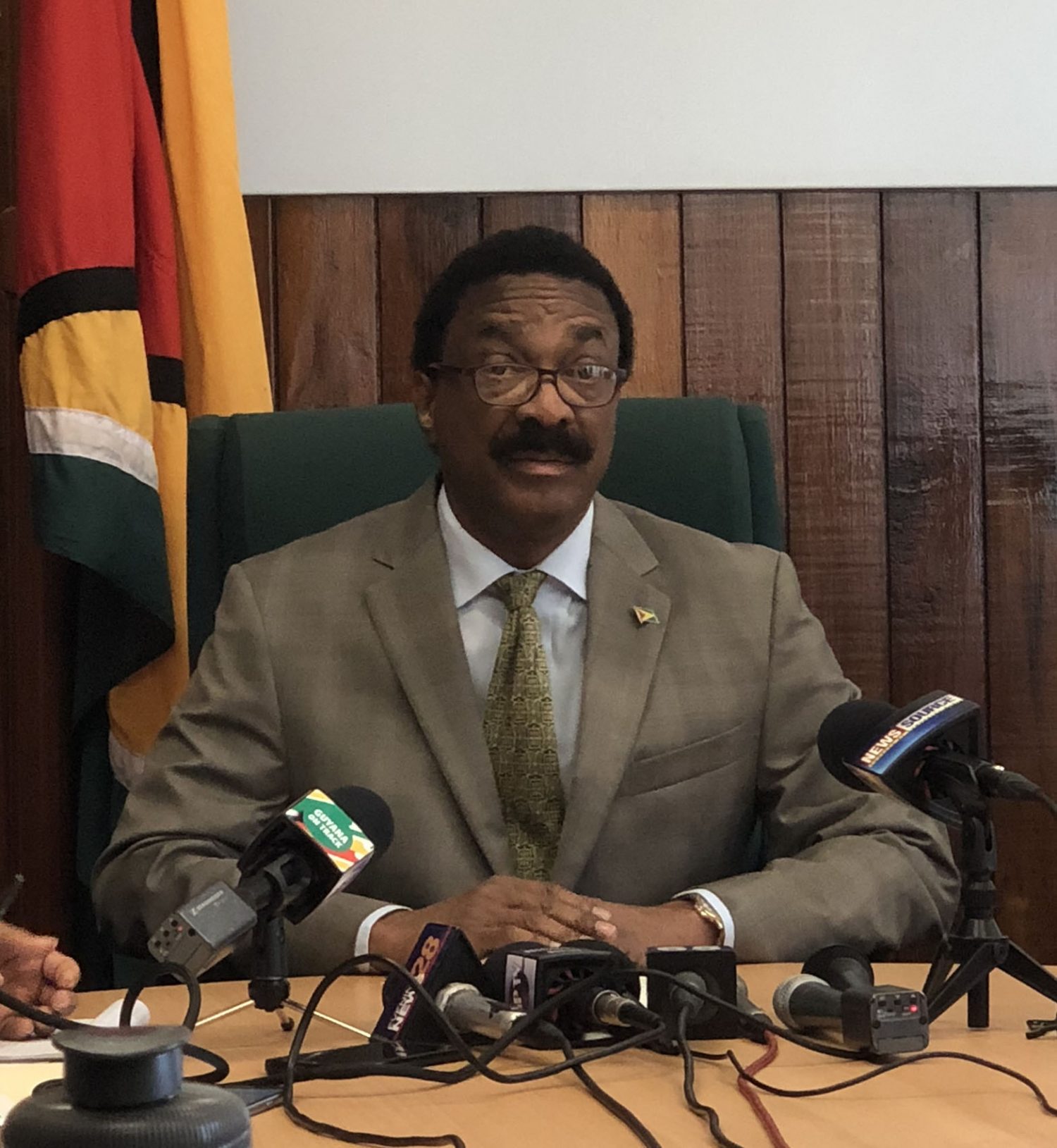Attorney General Basil Williams yesterday restated that the Government opted to settle some of their outstanding cases since they were “incurable” and denied suggestions that they might be benefitting from “kick-backs”.
Speaking at a press conference yesterday at the AG Chambers on Carmichael Street, AG Williams was questioned as to why the Government chose to settle most of their cases as opposed to fighting them.
“…Because a lot of those cases were incurable. In other words, when you appeal a matter, if an issue wasn’t argued below you couldn’t raise it on appeal,” he said, while noting that they discovered similar issues with many other cases but they are prepared to deal with the more serious cases.
Williams also argued that the conditions for the cases to be settled were first created by then-AG Anil Nandlall, who “failed to deal with BK,” as he referenced the case between the Ministry of Communities and BK International, where the latter was awarded a US$5.7 million settlement.
When questioned about suggestions that government officials might be benefitting from the settlement, Williams refuted the claims and stated that it was impossible since the matters are usually dealt with by the Ministries they fall under.
“I don’t make those decisions. You have the Ministers of the relevant Ministry that would have custody of the matter. As in the Sugrim case [NDIA – v- H. Sugrim] the Minister of Agriculture [Noel Holder] stood up in parliament and answered to it and then there’s Cabinet. There is nobody who can take kick-back and all of that, not in our government,” Williams said, while asserting that the matters are dealt with by their subject Ministers before they are taken to Cabinet.
To help tackle corruption and prevent “kick-backs”, Williams also pointed out that they have been to various parts of the country where they have been sensitising government workers about anti-corruption.
“Corruption robs villages of drainage, roads, lights, garbage collection and of course labour,” he said.
Williams also made mention again of the list of cases that he would’ve had to oversee after replacing Nandlall and pointed out that after the case between the Government and the construction company Dipcon came up, they wrote individual lawyers and the Appeal and High Courts, requesting the list of cases which the AG Chambers are involved in.
“In addition, I decided to have an e-register and that was tendered out…. We will have an idea of the amount of cases we have, and the third thing we did was to put the matter in the hands of the police to investigate. And Nandlall has to be questioned by the police as to how many matters he outsourced. We cannot be discovering when judgments are made,” he said, while pointing out that despite information being requested from the lawyers, none of them were forthcoming.
In addition to paying out BK International, Williams also referenced the NH International Ltd.; Emile Elias – v- Attorney General where US$11 million plus $403 million was ordered to be paid; Rudisa Beverages – v- AG, where $7.2 billion was the amount the court ordered to be paid.
He also noted the cases of Toolsie Persaud Ltd. – v- AG, where $1.7 billion was the amount settled on by the court and the NDIA [National Drainage and Irrigation Authority] – v – H. Sugrim where it was ordered that $226.1 million be repaid.






